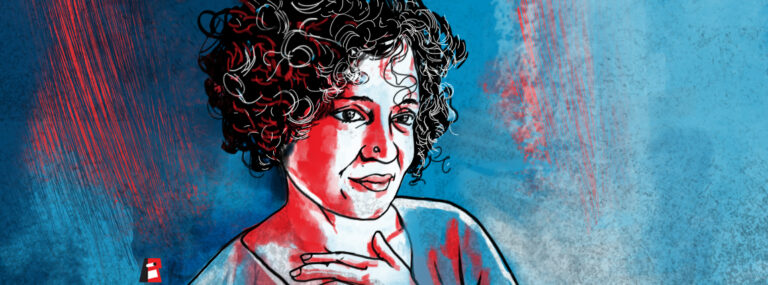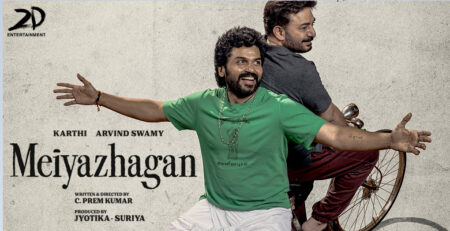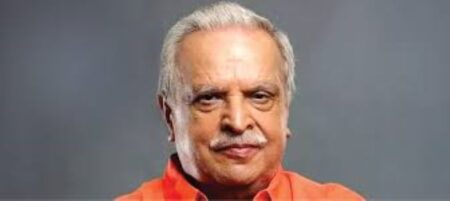The curriculum includes a speech by the Booker winner, delivered in the US in 2002, which criticises the BJP’s Hindutva policies and the US wars abroad.
The BJP has taken issue with the Calicut University’s decision to include a speech by Booker Prize winner and essayist Arundhati Roy in its textbook for BA English course. The BJP’s state president, K. Surendran, has written to Kerala Governor Arif Mohammed Khan, also the chancellor of the university, seeking withdrawal of the speech from the syllabus. Surendran has said that Roy’s speech questioned the sovereignty and integrity of the country and that it alleged that Hindus were fascists.
The university board of studies has said the speech was recommended by a 10-member committee last year and attested by the Academic Council. It will be taught in the third semester this year. The speech is included in the textbook ‘Appreciating Prose’. Roy made the controversial speech at an event in September 2002 in Santa Fe, New Mexico, in which American historian Howard Zinn (who died in 2010) was also present. “She grew up in Kerala which is a special place in India and studied architecture, which some people say accounts for the precision of her language. Who knows? There’s a mystery there..,” Zinn said while introducing Roy to the crowd at Lensic Performing Arts Center in Santa Fe.
We are reproducing excerpts from the speech:
On Writing
The theme of much of what I write, fiction as well as nonfiction, is the relationship between power and powerlessness and the endless, circular conflict they’re engaged in. John Berger, that most wonderful writer, once wrote: “Never again will a single story be told as though it’s the only one.” There can never be a single story. There are only ways of seeing. So when I tell a story, I tell it not as an ideologue who wants to pit one absolutist ideology against another, but as a story-teller who wants to share her way of seeing. Though it might appear otherwise, my writing is not really about nations and histories; it’s about power. About the paranoia and ruthlessness of power. About the physics of power. I believe that the accumulation of vast unfettered power by a State or a country, a corporation or an institution — or even an individual, a spouse, a friend, a sibling — regardless of ideology, results in excesses such as the ones I will recount here.
Anti-national
In India, those of us who have expressed views on nuclear bombs, big dams, corporate globalisation and the rising threat of communal Hindu fascism — views that are at variance with the Indian Government’s — are branded ‘anti-national’. While this accusation doesn’t fill me with indignation, it’s not an accurate description of what I do or how I think. Because an ‘anti-national’ is a person who is against his or her own nation and, by inference, is pro some other one. But it isn’t necessary to be ‘anti-national’ to be deeply suspicious of all nationalism, to be anti-nationalism. Nationalism of one kind or another was the cause of most of the genocide of the 20th century. Flags are bits of coloured cloth that governments use first to shrink-wrap people’s brains and then as ceremonial shrouds to bury the dead. When independent-thinking people (and here I do not include the corporate media) begin to rally under flags, when writers, painters, musicians, filmmakers suspend their judgment and blindly yoke their art to the service of the “Nation”, it’s time for all of us to sit up and worry. In India, we saw it happen soon after the nuclear tests in 1998 and during the Kargil War against Pakistan in 1999. In the U.S., we saw it during the Gulf War and we see it now during the “war against terror.” That blizzard of Made-in-China American flags.
Fascist Policies
In India, not hundreds, but millions of us would be ashamed and offended if we were in any way implicated with the present Indian government’s [BJP government led by AB Vajpayee] fascist policies which, apart from the perpetration of State terrorism in the valley of Kashmir (in the name of fighting terrorism), have also turned a blind eye to the recent state-supervised pogrom against Muslims in Gujarat. It would be absurd to think that those who criticize the Indian government are “anti-Indian” – although the government itself never hesitates to take that line. It is dangerous to cede to the Indian government or the American government or anyone for that matter, the right to define what “India” or “America” is or ought to be.
9/11 attacks
None of us needs anniversaries to remind us of what we cannot forget. So it’s no more than coincidence that I happen to be here, on American soil, in September – this month of dreadful anniversaries. Uppermost on everybody’s mind of course, particularly here in America, is the horror of what has come to be known as 9/11. Nearly three thousand civilians lost their lives in that lethal terrorist strike. The grief is still deep. The rage is still sharp. The tears have not dried. And a strange, deadly war is raging around the world. Yet, each person who has lost a loved one surely knows secretly, deeply, that no war, no act of revenge, no daisy-cutters dropped on someone else’s loved ones or someone else’s children, will blunt the edges of their pain or bring their own loved ones back. War cannot avenge those who have died. War is only a brutal desecration of their memory.
The other 9/11
Twenty-nine years ago, in Chile, on the 11th of September 1973, General Pinochet overthrew the democratically elected government of Salvador Allende in a CIA-backed coup. “Chile should not be allowed to go Marxist just because its people are irresponsible,” said Henry Kissinger, Nobel Peace Laureate, then the U.S. Secretary of State. After the coup, President Allende was found dead inside the presidential palace. Whether he was killed or whether he killed himself, we’ll never know. In the regime of terror that ensued, thousands of people were killed. Many more simply “disappeared”. Firing squads conducted public executions. Concentration camps and torture chambers were opened across the country. The dead were buried in mine shafts and unmarked graves. For seventeen years the people of Chile lived in dread of the midnight knock, of routine “disappearances”, of sudden arrest and torture. Chileans tell the story of how the musician Victor Jara had his hands cut off in front of a crowd in the Santiago stadium. Before they shot him, Pinochet’s soldiers threw his guitar at him and mockingly asked him to play.
Those of us who have only ever known life in a democracy, however flawed, would find it hard to imagine what living in a dictatorship and enduring the absolute loss of freedom means.




